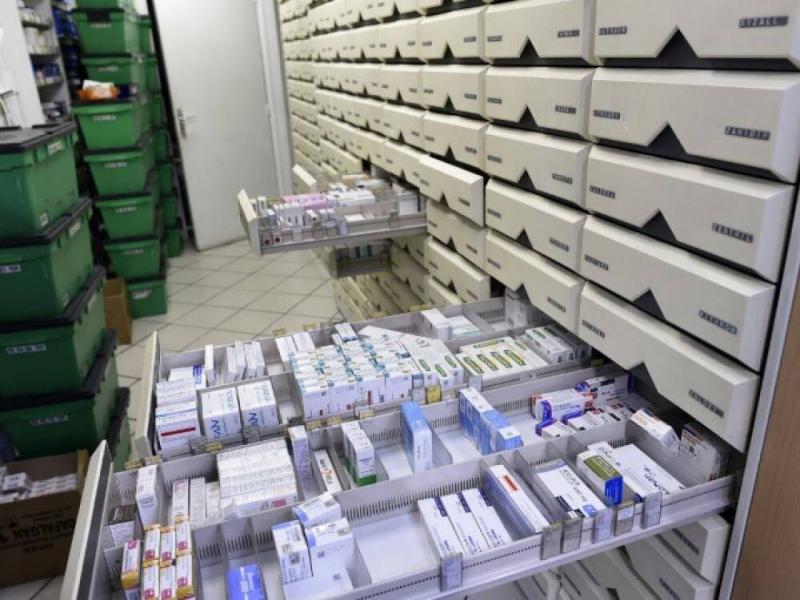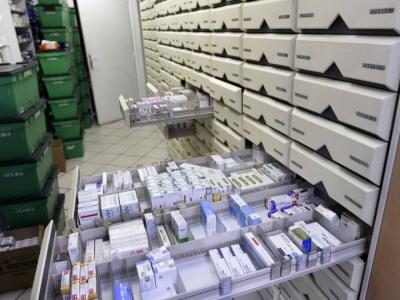"Arms dealers or thieves and murderers," Minister of Interior Bassam Mawlawi often repeats that their activities have not increased, stressing that security is under control, backed by tangible evidence and intelligence. However, how can his colleague in the government, Minister of Health Firas Al-Abed, count the number of patients receiving either ineffective counterfeit doses or deadly ones, as they are slowly approaching their demise, predetermined by counterfeit drug dealers?
The president of the pharmacists' union, Joe Saloum, who has repeatedly called for halting the manipulation of patients' lives, revealed to "Wardna" that the problem today lies in the unavailability of cancer and chronic disease medications from the Ministry of Health, forcing patients to turn to the black market, where smuggled drugs from various countries, including Syria, Iran, Turkey, and others, are sold. Regarding the effectiveness and quality of these medications, Saloum explained that "a significant portion of them is counterfeit or improperly and unsafely stored." Proper drug storage is essential to ensure the safety of individuals and the effectiveness of medications, noting the continued phenomenon of selling subsidized drugs in the black market.
Saloum emphasized that cancer drugs should remain subsidized because patients cannot afford to purchase them, insisting that they have the right to receive their treatment for free and of high quality. He stated, "A cancer patient is not a test subject," pointing out that the lack of many of these medications in pharmacies forces patients to alter their treatment protocols and resort to the black market.
In light of the challenges facing the healthcare system in Lebanon, alongside the regulatory role the pharmacists' union must undertake to monitor pharmacists' practices and ensure compliance with drug-related laws and regulations, Saloum revealed that more than 50 pharmacies have been referred for investigation for possessing counterfeit drugs that do not meet the required standards, in addition to price manipulation. This was done in collaboration with the security apparatus, which recently uncovered networks smuggling medications from Turkey and Europe, selling them in Lebanese pharmacies without assurance of their validity by the Ministry of Health, thus posing a danger to the health of patients and Lebanese citizens.
#### Association of Drug Importers
Since the onset of the Lebanese crisis and the discontinuation of some medications, smuggling and counterfeiting have spread illegally and uncontrollably in certain areas, either through organized smuggling via illicit channels or through personal smuggling using luggage. In this context, the head of the importers' union in Lebanon, Joseph Ghreeb, stated in an interview with "Wardna" that the "vacuum" is the main reason behind the spread of this phenomenon, which analysis has confirmed negatively impacts health.
Following the assumption of duties by the acting Governor of the Central Bank, Wassim Mansouri, the payment of dues to drug manufacturers ceased, causing concern among these companies. Ghreeb indicated that "approximately $275 million are the value of their outstanding and unpaid debts with the Central Bank." He clarified that only subsidized cancer drugs are missing, while non-subsidized ones are available since they are not subject to the support mechanism determined by the Central Bank and the Ministry of Health.
He confirmed that the union is in contact with the parliamentary health committee and the Ministry of Health to establish a plan allowing the government to give permission for the disbursement of funds to support medications for a period of two months, emphasizing the urgent need for a permanent solution that grants patients, doctors, and importing companies their rights.
#### "No Solution in Sight"
The Public Health, Labor, and Social Affairs Committee, which is following up on this national and humanitarian issue, revealed its head, MP Bilal Abdullah, to "Wardna," stating that they will meet next Monday at 10:30 AM to discuss dialysis and cancer drug issues along with chronic diseases. "A minimum of $20 million per month is the required amount to cover the support for these drugs," according to Abdullah, who affirmed that this matter is the responsibility of the government, relevant ministries, the Central Bank, and importing companies, pointing out that "there is no solution in sight."
The pharmaceutical sector in Lebanon has not escaped the economic crisis, as "mafias" exploited the market's needs and the patients' necessities for pain relief, following the unavailability of dollars in the Central Bank, which led to the loss of these medications from pharmacies. All of this necessitates effective and urgent intervention from the authorities.




